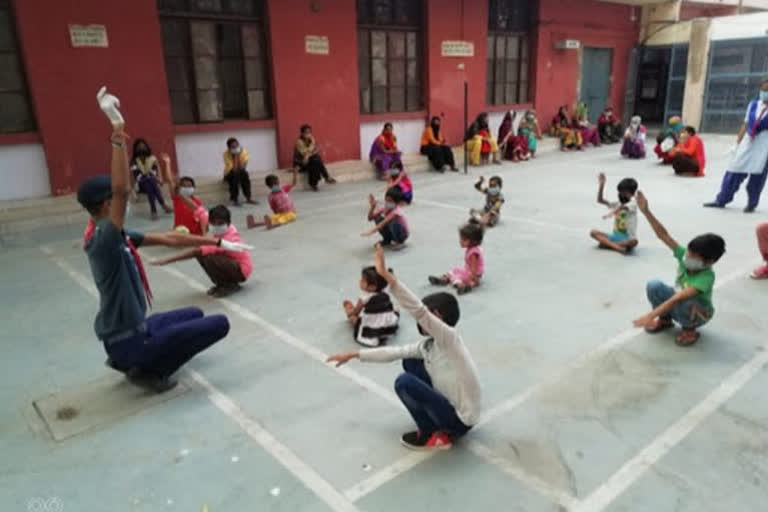Hyderabad:About two years ago, the name Muzaffarpur in Bihar earned notoriety all over the country. There were shocking reports of brutal sexual assault on 34 girls at a shelter home, situated in that area. As per the survey reports highlighted by TISS (Tata Institute of Social Sciences), another 15 shelter homes have been found to be guilty of creating worse heart-rendering conditions.
The testimony of the report, coupled with the news of prostitution racket that erupted at the Deoriya Asylum in Uttar Pradesh has caused a great deal of controversy. The Supreme Court has questioned where the security was for these victims when the very hands that need to shelter and support them are pushing them into such dungeons.
In that context, according to a report compiled by the National Commission for Protection of the Rights of the Child (NCPCR), the condition of asylums across all the states is not looking all well. The NCPCR estimates that the number of problematic care centres without any proper arrangements that control physical and sexual assaults on asylum seekers is the highest in Tripura (which is about 86.8 per cent), followed by Karnataka (74.2%), while Odisha (68%), Kerala (63.4%) and Assam (60.9%) are in the next four places. Statistical analysis suggests that not just the government-run shelter homes, but the private shelter homes which are run by the huge donations from international donors, is also not performing any better.
About 6200 children in 145 Shelter Homes run by NGOs in Andhra Pradesh have received about funding to a tune of over Rs.400 crores in a period of 1 financial year. That is an average per capita Rs. 6.6. lakh per kid.
The per capita funding in many states such as Telangana is Rs. 3.88 lakh, followed by more than Rs.2 lakhs in Kerala, Karnataka and Tamil Nadu, through external and international donors.
However, not enough care is being taken to address issues such as lack of adequate staff recruitment and infrastructure requirements. This is a strong indication that all the received funds are being diverted elsewhere. Earlier, Bihar Chief Minister Nitish Kumar has agreed that Muzaffarpur-style incidents are likely to take place when there are no strict arrangements and stringent action against the culprits. However, there are more such Muzaffarpurs that are sprouting on a daily basis, in the country today.
The fundamental inspiration of Articles 19 and 34 of the Constitution of India is that children shall not be subjected to any form of discrimination or sexual violence. In response, the Supreme Court clarified in May 2017 that all childcare centres should be registered under certain regulations and that social audits should be conducted regularly within a specified period.
The Union Ministry of Women and Child Welfare set December 1 of the same year (2017) as the date for registration of every child care centre in the country under the Child Law (Juvenile Justice) Act.
The NCPCR study reveals that many child protection centres in states like Maharashtra (to a tune of 88.9 per cent), Tripura (52.6 per cent), Delhi (46.8 per cent), Kerala (41.6 per cent) and Telangana (40.1 per cent) are still flouting the rule. Even in places where there is a possibility of the government officials like the District Welfare and Child Protection Committees can go in and inspect these centres, it is becoming impossible for them to even step into the centre premises, all because invisible political power is at play and it is becoming successful in creating an invisible barrier between the shelter homes and the inspection committees. Even the recent shameful incidents that took place in a shelter home in Ameenapur of Telangana are fresh examples of an immoral bond that exists between the shelter home managers, government/inspection committee officials and local landlords.
In the global scenario, countries like Norway are imposing severe penalties for any crime against children. With strict restrictions, the United States and the United Kingdom place special emphasis on child care. In a similar way, only when the law and order situation in the country's law enforcement is improved, will it help the orphanages and the shelter homes for children stand up to their name and protect the ill-fated children by becoming a protecting hand instead of a problematic one for these innocent lives.
Also Read:Impact ETV Bharat: Administration takes cognisance, reach out for kids' custody but fails
